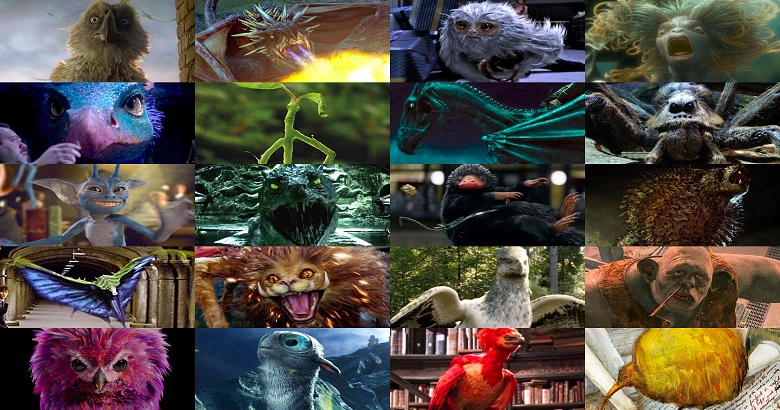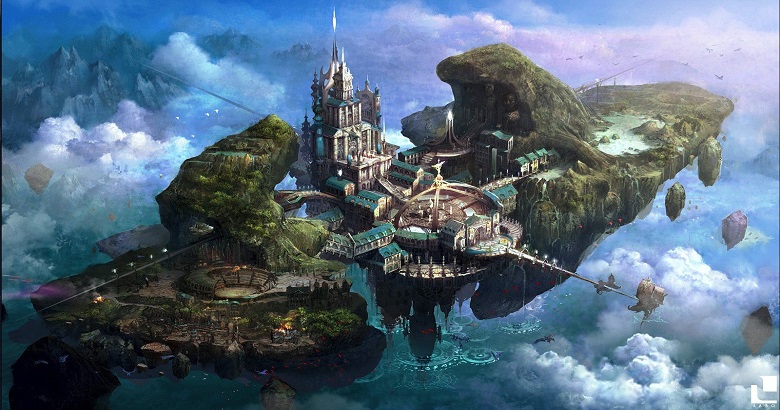Fantasy is a captivating genre that transports readers to worlds filled with magic, mythical creatures, and epic adventures. It offers a unique blend of elements that set it apart from other genres. Let’s explore what makes fantasy distinct and why it continues to enchant audiences worldwide.
The Essence of Fantasy
Imaginative Worlds
At the heart of fantasy lies the creation of imaginative worlds. These settings are entirely fictional, with their own rules, histories, and landscapes. From Tolkien’s Middle-earth to Rowling’s Wizarding World, these places are meticulously crafted, offering readers an escape from reality. The ability to explore new realms is a defining characteristic that separates fantasy from other genres.
These worlds often have their own geography, climates, and ecosystems. Authors invest significant time in developing these settings to ensure they feel real and immersive. The details of these worlds allow readers to lose themselves in the narrative, experiencing adventures in places beyond the constraints of reality.
Magical Elements
Magic is a cornerstone of fantasy, adding wonder and unpredictability. Whether it’s the spell-casting wizards of “Harry Potter” or the enchanted rings in “The Lord of the Rings,” magic introduces possibilities beyond the natural laws of our world. This element of the supernatural allows for creative storytelling, where the impossible becomes possible.
Magic systems in fantasy can vary widely, from simple spells to complex structures with detailed rules. Authors must balance these systems to maintain consistency and believability within their worlds. The presence of magic enables stories to explore themes of power, responsibility, and the unknown, providing endless opportunities for creative expression.
Characters and Creatures

Legendary Heroes and Villains
Fantasy often features larger-than-life characters who embark on epic quests. These heroes and villains are not only defined by their actions but also by their moral complexities and development. Characters like Frodo Baggins, Harry Potter, and Daenerys Targaryen resonate with readers because they embody universal themes of courage, sacrifice, and the battle between good and evil.
The journeys of these characters often serve as allegories for personal growth and self-discovery. Through their trials and triumphs, readers witness the complexities of human nature and the choices that define us. These narratives encourage introspection and inspire readers to confront their own challenges with bravery and resilience.
Mythical Creatures
Dragons, elves, dwarves, and other mythical creatures populate fantasy worlds, adding depth and intrigue. These beings often have their own cultures, languages, and histories, enriching the narrative. The presence of such creatures allows authors to explore themes of diversity, coexistence, and the unknown.
These creatures are not merely background elements; they play integral roles in the story, influencing events and characters. Their interactions with humans and other beings can reflect real-world issues such as prejudice, environmentalism, and cultural exchange. By using mythical creatures, authors can address complex themes in a way that is engaging and accessible.
Themes and Motifs
Good vs. Evil
The struggle between good and evil is a prevalent theme in fantasy. This classic conflict drives the narrative, allowing for the exploration of moral questions and human nature. In series like “The Chronicles of Narnia,” this theme is central, offering lessons on morality, redemption, and the power of choice.
Fantasy often portrays this battle in epic proportions, with high stakes and dramatic confrontations. However, it also delves into the gray areas, challenging readers to consider the complexities of morality. Characters may face difficult choices, blurring the lines between right and wrong and prompting readers to reflect on their own values.
Identity and Self-Discovery
Many fantasy stories delve into themes of identity and self-discovery. Characters often embark on journeys that lead to personal growth and understanding. This motif resonates with readers as it mirrors real-life quests for meaning and purpose. Through their adventures, characters learn about themselves and their place in the world.
These journeys often involve overcoming internal and external obstacles, leading to transformation and enlightenment. Fantasy provides a safe space for readers to explore their own identities and aspirations, encouraging self-reflection and personal growth.
Literary Techniques
World-Building
World-building is a critical aspect of fantasy writing. Authors create detailed settings that feel alive and immersive. This involves crafting everything from geography and politics to languages and customs. Successful world-building allows readers to fully immerse themselves in the story, enhancing the escapism that fantasy offers.
Authors must consider every aspect of their worlds, ensuring consistency and believability. This meticulous attention to detail creates a rich tapestry that draws readers in, allowing them to explore every corner of the fictional universe. World-building is not just about creating a backdrop; it’s about creating a living, breathing environment that enhances the narrative.
Symbolism and Allegory
Fantasy often employs symbolism and allegory to convey deeper meanings. These literary devices allow authors to address complex themes and societal issues in a nuanced way. For example, Tolkien’s “The Lord of the Rings” can be seen as an allegory for the industrialization of England, exploring themes of power, corruption, and environmental destruction.
Symbolism in fantasy can take many forms, from objects and creatures to entire settings. These symbols enrich the narrative, offering layers of meaning and encouraging readers to think critically about the story. Allegory allows authors to comment on real-world issues through the lens of fantasy, making complex topics more relatable and understandable.
Appeal and Impact

Escapism and Imagination
One of the primary reasons fantasy remains popular is its ability to provide escapism. In today’s fast-paced world, readers find solace in stories that transport them to magical realms. Fantasy ignites the imagination, allowing people to dream and explore possibilities beyond reality.
The imaginative nature of fantasy offers a respite from the mundane, inspiring creativity and wonder. Readers can explore new worlds, experience grand adventures, and live vicariously through the characters. This escapism is not just about avoiding reality; it’s about expanding horizons and embracing the limitless potential of the imagination.
Cultural Influence
Fantasy has a significant cultural impact, influencing various forms of media, including films, television, and video games. Iconic franchises like “Game of Thrones” and “The Witcher” have brought fantasy to mainstream audiences, showcasing its versatility and appeal. The genre’s ability to adapt and evolve keeps it relevant and exciting.
Fantasy’s influence extends beyond entertainment, shaping cultural conversations and inspiring new generations of creators. Its themes and motifs resonate with audiences worldwide, transcending cultural and linguistic barriers. As fantasy continues to evolve, it remains a powerful force in shaping the stories we tell and the way we perceive the world.
Final thoughts
Fantasy is a genre that stands apart due to its imaginative worlds, magical elements, and exploration of universal themes. Its unique blend of characters, creatures, and literary techniques creates a rich tapestry that captivates readers. As fantasy continues to evolve and inspire, it remains a testament to the power of imagination and storytelling. Through fantasy, we are reminded that anything is possible and that the only limits are those of our own creativity.
Frequently Asked Questions
1. How does world-building enhance the fantasy genre?
World-building is crucial in fantasy, creating immersive and believable settings. Authors meticulously craft geography, history, and culture, allowing readers to escape into fully realized worlds. This depth provides a backdrop for epic narratives and enriches the story’s emotional and thematic impact. By establishing unique rules and environments, world-building allows fantasy stories to explore complex themes, offering readers a sense of wonder and exploration.
2. Why is magic a central element in fantasy stories?
Magic adds an element of wonder and limitless possibility to fantasy. It breaks the constraints of reality and allows for imaginative storytelling. Magic systems can vary from whimsical to structured, each offering different narrative possibilities. This diversity enables authors to explore themes of power, morality, and the human condition, providing a unique lens through which to examine real-world issues. Magic’s presence challenges characters and readers to consider the boundaries of possibility.
3. What role do mythical creatures play in fantasy narratives?
Mythical creatures enrich fantasy worlds with diversity and intrigue. They often embody cultural myths and legends, adding depth to the narrative. These creatures can symbolize aspects of human nature or societal issues, offering allegorical insights. Their interactions with characters explore themes of coexistence, prejudice, and understanding. By introducing beings like dragons or elves, fantasy stories can address complex topics in a way that is engaging and thought-provoking.
4. How does fantasy explore the theme of good vs. evil?
Fantasy delves into the classic conflict of good vs. evil, often presenting it in epic proportions. This theme allows for the exploration of moral complexities and human nature. Characters face challenges that test their values and choices, reflecting real-world ethical dilemmas. The genre often blurs the lines between right and wrong, encouraging readers to question and reflect on their own beliefs. This exploration offers insight into the universal struggle between light and darkness.
5. Why is escapism important in the fantasy genre?
Escapism is a fundamental appeal of fantasy, offering readers a break from reality. It provides a safe space to explore new worlds and ideas, fostering creativity and imagination. Escapism allows readers to experience adventures and emotions beyond their daily lives. This temporary retreat can inspire hope, resilience, and a sense of wonder. By engaging with fantastical narratives, readers gain perspective and insight, enriching their understanding of both fictional and real worlds.

